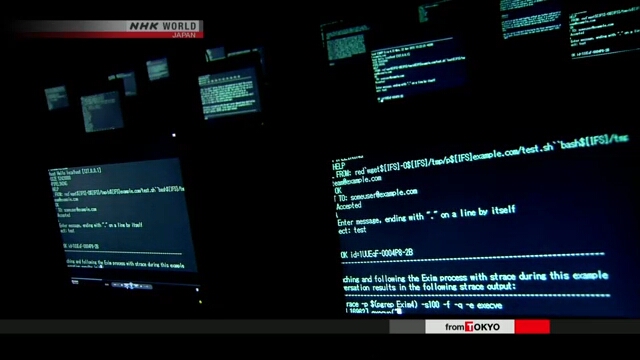Japan Will Hack Their Citizens' Devices In Preparation For Olympics 2020
Arnav Dhar - Feb 01, 2019

The Japanese government has passed a law that allows NICT to hack their citizens' online devices in an attempt to boost up national cybersecurity in preparation for Olympics 2020.
- Japan Marks 10 Years Since The Fukushima Disaster Killing 18,500 People
- Japan Has New Minister Of Loneliness To Deal With Suicide Rates
- You Can Work From Anywhere With These Phone Booth Office Spaces
The government of Japan might want to become the most notable white-hat hacker in the world.
According to NHK World, from this February, Japan's NICT (National Institute of Information and Communications Technology) will carry out their plan on hacking Japanese citizens' internet-accessed devices including webcams, routers, and other IoT devices as well. This plan is a part of a 5-year endeavor to improve and strengthen the country's cybersecurity.

Japanese NICT got all the rights to hack the devices of Japanese citizens since November 2018, stating the need to boost the national cybersecurity while preparing for the Summer Olympics in Japan next year. Following the plan, they will try to hack about 200 million devices across the country.
Of course, this is nothing but a good intention for Japanese citizens. For users whose devices have been successfully hacked, they will be informed by NICT. Daisuke Inoue, a researcher at NICE, revealed to NHK World that the institute would protect all the information that they collect, including personal and private information like user's images on their webcams.

Obviously, nobody wants to be hacked, regardless of whether it's the Japanese authority or a huge number of citizens whose online devices will be put into test.
If the hacks are successful, Japanese citizens will need to be concerned with their private information. It is each individual's responsibility and benefits to strengthen their online security level by using 2-factor authentication and more secure passwords. This logic and the idea of the Japanese government, however, do raise a question: why NICT does not just warn the people to better safeguard their private information?
Anyway, in this scenario, it still depends on the citizens to boost up the security on their IoT devices. But it is still unclear why the privacy of them needs to be invaded just to get them to protect their private data.
Featured Stories

Features - Jan 29, 2026
Permanently Deleting Your Instagram Account: A Complete Step-by-Step Tutorial

Features - Jul 01, 2025
What Are The Fastest Passenger Vehicles Ever Created?

Features - Jun 25, 2025
Japan Hydrogen Breakthrough: Scientists Crack the Clean Energy Code with...

ICT News - Jun 25, 2025
AI Intimidation Tactics: CEOs Turn Flawed Technology Into Employee Fear Machine

Review - Jun 25, 2025
Windows 11 Problems: Is Microsoft's "Best" OS Actually Getting Worse?

Features - Jun 22, 2025
Telegram Founder Pavel Durov Plans to Split $14 Billion Fortune Among 106 Children

ICT News - Jun 22, 2025
Neuralink Telepathy Chip Enables Quadriplegic Rob Greiner to Control Games with...

Features - Jun 21, 2025
This Over $100 Bottle Has Nothing But Fresh Air Inside

Features - Jun 18, 2025
Best Mobile VPN Apps for Gaming 2025: Complete Guide

Features - Jun 18, 2025
A Math Formula Tells Us How Long Everything Will Live
Read more

Mobile- Feb 17, 2026
Anticipating the Samsung Galaxy S26 and S26+: Key Rumors and Specs
The Samsung Galaxy S26 series is on the horizon, sparking excitement among tech enthusiasts.

ICT News- Feb 18, 2026
Google's Project Toscana: Elevating Pixel Face Unlock to Rival Apple's Face ID
As the smartphone landscape evolves, Google's push toward superior face unlock technology underscores its ambition to close the gap with Apple in user security and convenience.

Mobile- Feb 16, 2026
Xiaomi Launches Affordable Tracker to Compete with Apple's AirTag
For users tired of ecosystem lock-in or high prices, the Xiaomi Tag represents a compelling, no-frills option that delivers core functionality at a fraction of the cost.
Comments
Sort by Newest | Popular